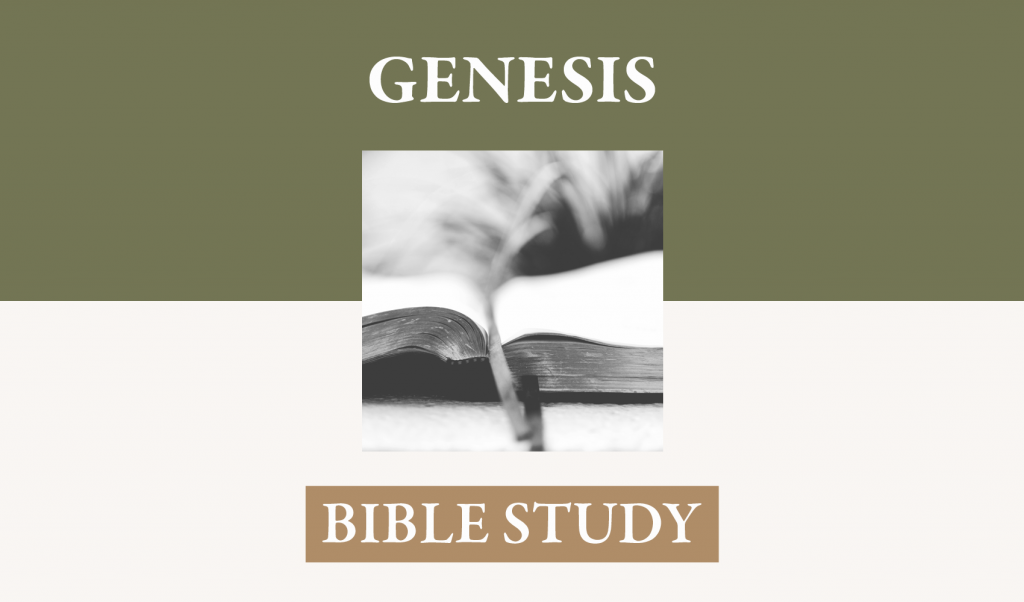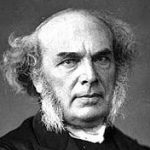The Point: I don’t have to get my way to solve a conflict.
Abram and Lot: Genesis 13:1-7.
[1] So Abram went up from Egypt, he and his wife and all that he had, and Lot with him, into the Negeb. [2] Now Abram was very rich in livestock, in silver, and in gold. [3] And he journeyed on from the Negeb as far as Bethel to the place where his tent had been at the beginning, between Bethel and Ai, [4] to the place where he had made an altar at the first. And there Abram called upon the name of the LORD. [5] And Lot, who went with Abram, also had flocks and herds and tents, [6] so that the land could not support both of them dwelling together; for their possessions were so great that they could not dwell together, [7] and there was strife between the herdsmen of Abram’s livestock and the herdsmen of Lot’s livestock. At that time the Canaanites and the Perizzites were dwelling in the land. [ESV]
[1-7] This incident presents a contrast between Abram and Lot. Let us begin by looking at Abram’s spiritual state at this time. Abram had been in Egypt through a lack of confidence in God and had suffered humiliation there as a result of his unbelief. He had begun by doubting God. He left his place of worship. He grew self-confident. One sin led to another, and his own sin spread. He suffered the temporary loss of his wife. Finally, he was rebuked by Pharaoh. It was a sad, and no doubt greatly subdued, man who eventually led his little company back to Canaan. Yet Abram was wiser. He had doubted God once and had seen where that had led. As we read the opening verses of Genesis 13 we get a picture of the patriarch moving restlessly on until he reached Bethel, where he had been at first. What did Abram do when he called on the Lord? Undoubtedly he confessed his sin and was restored to full communion. Abram had sinned and gotten into trouble. But he was willing to admit that it was sin and confess it to God. Unfortunately, many Christians who sin do not do this. They are sometimes forced to stop some sin, but they do not really confess it. They try to cover it up and are therefore never restored to the joy of their initial conversion. How foolish we are to fail in this. Abram had failed once. He had been called out of Ur but had stopped in Haran, wasting many precious years there. God called him; he had a new opportunity. He came to the land of promise, but he failed there also. He went down to Egypt. Abram got into a great deal of trouble before God got him out of Egypt. But at last he did get out and was restored to the place of blessing. He returns to Bethel and finds it just as he left it. Although he failed, God has not cast him away. This was not the case with Lot, Abram’s nephew. Lot probably reasoned that the sin in going down to Egypt was Abram’s, not his, and he probably disassociated himself from Abram’s humiliation. But in thinking himself better at this point than his uncle, he failed to recognize his own sin and therefore began to sow seeds that were to grow up into contention with Abram and lead eventually to his own sad decline. Who was Lot? He was the son of Abram’s brother Haran, who had remained behind in the land of the Chaldeans when Abram went to Canaan. One might expect that Lot would have remained with his father. But either caught up in the enthusiasm of Abram’s decision to be a pilgrim or else merely desiring a change or a bettering of his condition, Lot went with Abram. He was swept into the current of Abram’s faith. The fact that Lot’s failure came from a lack of principle and not from a deliberate selection of evil is evident in the account, for the test at which he fell came indirectly. Lot and Abram had prospered. They had much livestock and many servants, some of whom had come from Egypt. So when they got back to the hill country from which they had set out, they found that the land that had been able to sustain them when they were less wealthy was now inadequate, and quarreling inevitably arose between Abram’s herdsmen and the herdsmen of Lot. Whose flocks should have the choice pasture? Whose should be first at the wells? In a situation like this, the petty quarreling between the servants of the two men was bound to affect their own relationship. So Abram, the wiser of the two, determined to nip it in the bud. He suggested that the two should part company. Here was a mature and sensitive move on Abram’s part. As the older man and the leader in the entire adventure, it was his right to have first choice. But he had learned something important. When he had gone to Egypt, he had chosen for himself and had gotten into great difficulty. Now he was content to leave the choices with God and to trust God for his future provision. Since he was sure God would provide, he held the things of this world loosely. If God gave them, that was all right. Abram would hold them in trust from God and use them for God’s glory. But if God took them away, that was fine too. For Abram had God and, having Him, had the only thing that ultimately mattered. Poor Lot! His life was shallow, and confronted with a choice like this, he could not help but choose what seemed better materially, regardless of the company he would have to keep in order to have it. He looked from the heights of Bethel to the plain of the Jordan, saw that it was well-watered, and chose the Jordan. Many have repeated that choice. It is significant that this is the first place wealth is mentioned in the Bible. Notice that although both Abram and Lot were wealthy, each had a different relationship to his own wealth. Abram had the flocks, but they did not have him. On the other hand, Lot’s flocks possessed him. Consequently, Abram became the father of the faithful, while Lot became the father of all who are possessed by their possessions and who are saved, if they are saved, only as through fire [1 Cor. 3:15].
The Maturity of Abram: Genesis 13:8-13.
[8] Then Abram said to Lot, "Let there be no strife between you and me, and between your herdsmen and my herdsmen, for we are kinsmen. [9] Is not the whole land before you? Separate yourself from me. If you take the left hand, then I will go to the right, or if you take the right hand, then I will go to the left." [10] And Lot lifted up his eyes and saw that the Jordan Valley was well watered everywhere like the garden of the LORD, like the land of Egypt, in the direction of Zoar. (This was before the LORD destroyed Sodom and Gomorrah.) [11] So Lot chose for himself all the Jordan Valley, and Lot journeyed east. Thus they separated from each other. [12] Abram settled in the land of Canaan, while Lot settled among the cities of the valley and moved his tent as far as Sodom. [13] Now the men of Sodom were wicked, great sinners against the LORD. [ESV]
[8-13] As recorded in 13:8, Abram graciously offered to let Lot choose the area where he, his flocks, and servants, would go. Abram realized that the strife between their herdsmen could easily transfer itself to Lot and himself, if the tension were not immediately alleviated. Possibly, his restoration to fellowship with God at the altar of Bethel had prepared Abram spiritually for this gracious concession. Lot’s fatal choice to move down into the plains of Jordan, and particularly near Sodom and Gomorrah, seems definitely to have been based on his walking by sight, and not by faith. It is one thing to follow along in the company of a godly relative or friend, but quite otherwise to act and live in the energy of faith alone, when by oneself. Lot’s path from this point on in Scripture would be steadily downward spiritually. The first step in Lot’s fall is that he looked toward Sodom [10]. This looking was not a mere looking with the eyes, for Abram himself would have done that. Abram as well as Lot knew that there was a fertile plain along the Jordan River and that the cities of the plain were in it. Lot’s looking was a looking with the heart, which was a longing. He was in the hill country with Abram. He had been prospered by God, as had Abram. But he was not satisfied with that. He wanted the things he imagined he was still missing. He wanted what Sodom represented. So with covetous eyes he looked in that direction. Second, he pitched his tents near Sodom [12]. If you had asked Lot why, at this time in his life, he settled near Sodom and did not actually go to live in the city, he might have explained that Sodom was an exceedingly wicked city. He would have had reservations about being closely tied to its life. Lot wanted to live near enough to Sodom to enjoy its supposed advantages but not get caught up in its life. As time went on, however, the same spirit that brought him to the valley brought him to the city, and the third step in Lot’s fall took place. So we read that Lot was dwelling in Sodom [14:12]. What a downfall! The New Testament says that Lot was greatly distressed by the sensual conduct of the wicked of Sodom and that he was tormenting his righteous soul over their lawless deeds [2 Peter 2:7-8]. But he lived there all the same. Moreover, it should be noted that although he was distressed by what he saw around him, his wife and daughters apparently were not; for his daughters married men of Sodom, and his wife so longed for the city that she refused to break with it completely, even at the time of its destruction, and was judged by being turned into a pillar of salt. There is one other stage, the fourth, in Lot’s ruin. We are told that Lot was sitting in the gate of Sodom [19:1]. That is, Lot had become one of the elders of the city, one of its political and business leaders. As far as we know, he did not change the city in the slightest.
God’s Promises to Abram: Genesis 13:14-18. .
[14] The LORD said to Abram, after Lot had separated from him, "Lift up your eyes and look from the place where you are, northward and southward and eastward and westward, [15] for all the land that you see I will give to you and to your offspring forever. [16] I will make your offspring as the dust of the earth, so that if one can count the dust of the earth, your offspring also can be counted. [17] Arise, walk through the length and the breadth of the land, for I will give it to you." [18] So Abram moved his tent and came and settled by the oaks of Mamre, which are at Hebron, and there he built an altar to the LORD. [ESV]
[14-18] The responses of Lot and of the Lord to Abram’s offer are contrasted in these verses. Lot separated from Abram for his possessions after he had lifted up his eyes [10], but the Lord instructs Abram to lift up your eyes [14] so as to see the vista of the whole land that will someday belong to his descendants. The magnimity of God’s grant involves all the land that the patriarch can see [15], all that he can walk [17], and all the descendants that he could ever count [16]. Verses 15 and 17 explain that the Lord Himself (I will give … I will make … I will give) grants this land to Abram and his offspring (seed), and it is the Lord who will multiply his posterity. The land moreover is a permanent possession (forever) as is the covenant promises to Abram [17:7,13,19]. The covenants made with Noah and David, both also divine grants, consist of perpetual provisions [9:12,16; 2 Sam. 7:16; 22:51; Ps. 89:4,36-37]. His future seed is likened to the innumerable dust of the earth [16], tying together the promises of land and offspring. The Lord further instructs Abram to survey the land by traversing its length and breadth in a sign of ownership [17]. How this will occur is not explained: the land is in the hands of Canaanites, and Sarai remains barren. Abram neither has the land in hand nor a descendant to whom he may bequeath it, yet he continues to wait on God. Abram’s response entailed his taking up residence at Hebron, by the oaks of Mamre and the building of an altar for worship. By the rapid-fire description in the Hebrew, Abram moved his tent and came and settled, the narrative conveys the patriarch’s immediate compliance and assurance that the promises will take place. The author mentions Mamre and Hebron for the first time, introducing an important cluster of sites in patriarchal history. Hebron is located in the south central mountains of Judah, the highest city in Palestine (3,040 ft.), about nineteen miles south southwest of Jerusalem. Mamre is about two miles north of Hebron. Mention of a city gate in 23:10,18 indicates the site was an urban center at the time. The well-watered and fertile region supported almost uninterrupted occupations from the fourth millennium to modern times. Hebron-Mamre was the primary settlement of Abram and Isaac. Hebron’s citizens were the first to acknowledge David as king from which he reigned over Judah for seven and a half years.
We observe in verse 14 that Abram, too, lifted up his eyes to look upon his territory – only he did so at the bidding of the Lord. Lot had gazed at his would-be property without waiting upon God. Yet when the Lord orders our action – and we comply – we are acting by faith and not by sight. Such was Abram’s response. It seems likely that Abram was at Bethel as he looked, with God’s permission, upon his land. If so, then Abram’s line of vision would have been from a central vantage point, and would have included the length and breadth of the land. Abram’s faith was rewarded in verse 15 by the unconditional, eternal gift of the land. Later, the property’s geographical limits would be specified once more [15:18]. Additionally, we see in verse 16 the second reference in Scripture to Abram’s seed. This time, these descendants are compared in number to the dust of the earth. God then instructed Abram to rise and walk through the land [17]. By this physical action, the patriarch would obtain personal and practical acquaintance with that which would later become his own. As believers, we today also possess a spiritual inheritance, which requires the exercise of spiritual vigor so that we might explore and claim it as our own [Eph. 1:3; 2:1,10; 4:1,17; 5:2,8,15]. In compliance with the divine command to walk through the land, Abram came and dwelt by the oaks of Mamre, also called Hebron. This is the first reference in the word to this important place. Mamre means “communion,” and can be contrasted with the commerce which characterized Sodom. Abram then built an altar unto the Lord, resuming the worship and testimony inspired by God earlier at Bethel.
Questions for Discussion:
1. What was Abram’s spiritual state at this time? What happened to him in Egypt? Why did he want to return to Bethel? Is there a “Bethel” in your life?
2. Compare and contrast Abram and Lot. How were they alike? How were they different? What was the key difference between these two men in this passage? How did this difference impact the future lives of each man? What can we learn here about how we are to make important decisions in our own life?
3. How did the Lord respond to Abram’s decision to allow Lot to have first choice concerning where to live? Focus on the covenant promises in verses 14-18 by concentrating on the “I will” statements by Yahweh. How did Abram respond to God’s promises (by faith, not by sight; since the land was still occupied and he was still childless)? Isn’t this the way we are to respond to God’s promises of future grace in His Word?
References:
Genesis, volume 2, James Boice, Baker.
Strangers & Pilgrims, V. Paul Flint, Loizeaux Brothers.
Genesis, volume 2, Kenneth Mathews, NAC, Broadman.

















